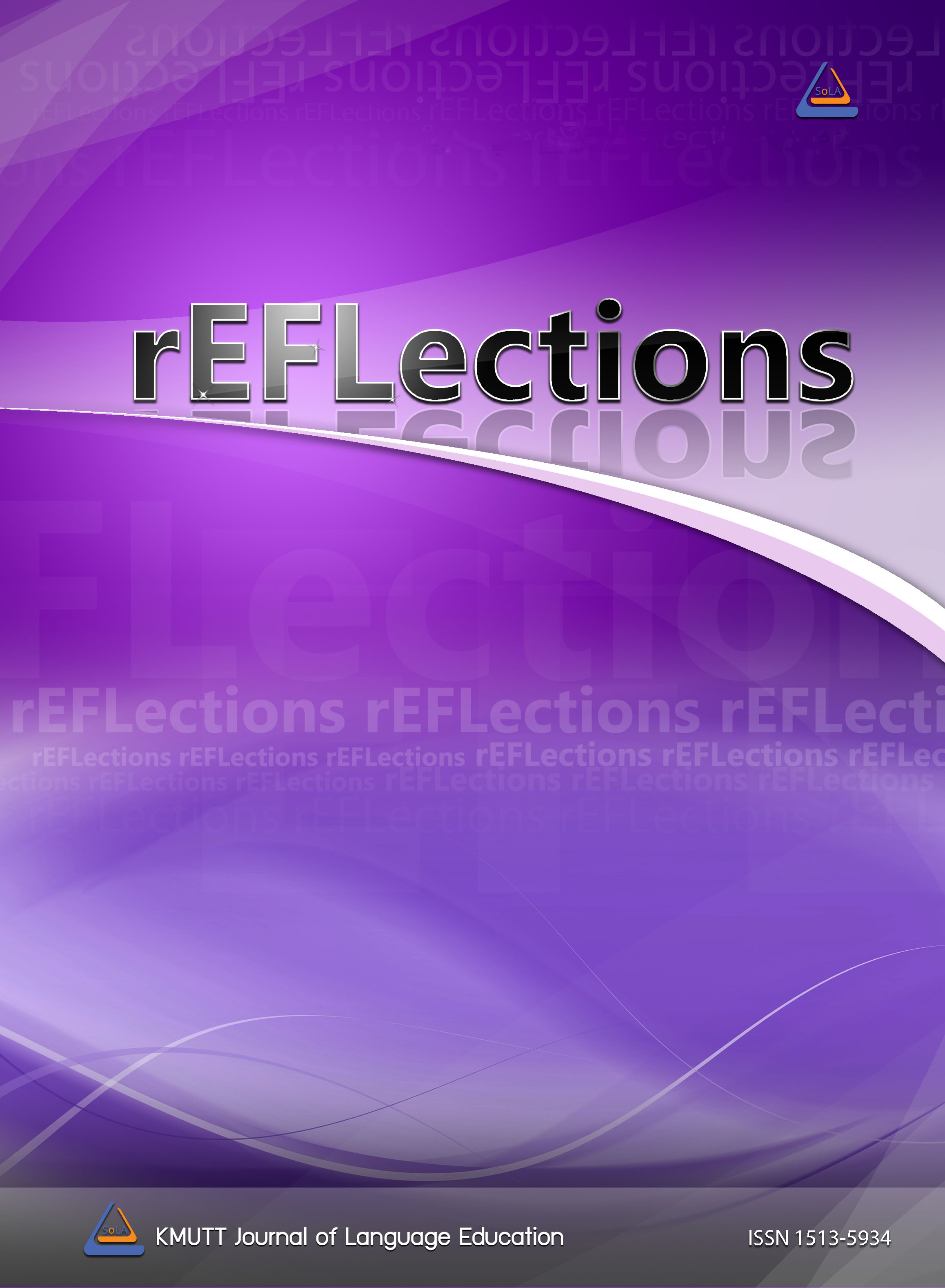A Needs Analysis of Thai Massage Employees’ (Thai Massage Therapists, Receptionists, and Managers) English Communication Skills in the city of Pattaya, Chonburi
Main Article Content
Abstract
English communication has gained its importance for Thai massage employees who are required to interact and provide massage services to foreign customers due to the popularity of Thai massage among foreigners. This study attempts to explore and analyze the needs and problems of Thai massage employees towards English communication in their workplaces located in Pattaya City, Thailand. This is a mixedmethodology research collecting data from 132 Thai massage employees through an online questionnaire and semi-structured interviews with five Thai massage employees to obtain insight data and further information. The key findings show that speaking and listening skills are the most needed skills including English vocabulary knowledge. In terms of the
most problematic skills, speaking, listening, and writing respectively were rated as high while reading skill reported as moderate. According to the interview, the results reveal that English competency may not greatly affect the quality of Thai massage service; however, being able to use English properly increases customers’ satisfaction and reduces time for the employees to communicate with foreign customers. The findings also indicate that the Thai massage therapists use their body languages, pictures, and memorized English patterns and sample phrases to communicate with foreign customers as their solutions for English
communication problems. This research which was conducted under a fund of the Faculty of Management Sciences, Kasetsart University reports
the needs and problems of these groups of people in order to design an English for Spa course based on English for Specific Purposes (ESP) principles to foster English communication skills for the Thai massage employees as well as for business students who are interested in ESP courses.
Article Details
References
Brown, J. D. (1995). The elements of language curriculum. A systematic approach to program development. Boston, MA: Heinle and Heinle.
Brumfit, C. J. (1987). The communicative approach to language teaching. Hong Kong: Oxford University Press.
Carter, D. (1983). “Some Proposition about ESP”. The ESP Journal, 2, 131-137.
Chetsadanuwat, K. (2018). Needs of English skills of Thai nurses working in international hospitals accredited by JCI in Bangkok area. Learn Journal, 11(1), 26-46.
Chia, M. (2005). Nuad Thai “Traditional Thai Massage”. Bangkok, Thailand: Duangkamol Publishing.
Chovancová, B. (2014). Needs analysis and ESP course design: self-perception of language needs among pre-service students. Studies in Logic, Grammar and Rhetoric, 38(1), 43-57.
Chumtong, K. (2014). The Training Needs Analysis of Thai Receptionists at a Hotel in Bangkok. Unpublished master’s research paper. Bangkok, Thailand: Thammasat University.
Cohen, L. L. (2011). Research Methods in Education. London, UK: Routledge.
Denscombe, M. (2010). The Good Research Guide for Small Scale Research Projects. Buckingham, UK: Open University Press.
Dudley-Evans, T. (1998). Development in English for Specific Purposes: A Multi-Disciplinary Approach. Hemel Hempstead, UK: Prentice Hall International.
Flowerdew, J. (2013). Discourse in English Language Education. London, UK: Routledge.
Graves, K. (2000). Designing Language Courses: A Guide for Teachers. Boston, MA: Heinle & Heinle Publishers.
Hutchinson, T. (1987). English for Specific Purposes: A Learning-Centred Approach. Cambridge, UK: Cambridge University Press.
Junplord, C. (2016 ). Investigation of English Skills Needed by Applied Thai Traditional Medicine Practioners. Bangkok, Thailand: Thamasart University .
Kanchanoo, J. (2012). Ancient Thai Massage: Healing with Life Force. Bangkok, Thailand: Amarin Printing and Publishing, Ltd.
Khakhai, K. (2014). English Language Needs Analysis of Thai Massage Therapists at Spas on Khaosarn Road, Bangkok. Bangkok, Thailand: Thammasat University .
Kogiso, K. (2012). Thai massage and health tourism in Thailand: Tourism acculturation process of “Thai Massage”. International Journal of Sport and Health Science, 10, 65-70.
Kuosuwan, B. (2016). The Readiness of English Communication Skills of Tourism Employees in Bangkok for Entering the ASEAN Community. International Journal of Environmental and Science Education, 11(18), 12903-12907.
Lawrence, R. F. (1991). Investigation Communication: An Introduction to Research Method. Jersey City, NY: Prentice Hall, Inc.
Luankanokrat, S. (2011). Needs Analysis for English Communication Skills of Employees at HSBC in Thailand, Bangkok. Bangkok, Thailand: Thammasart University.
Munby, J. (1978). Communicative Syllabus Design. Cambridge, UK: Cambridge University Press.
Nimnuch, S. (2011). English Communication Problems Influencing Thai People to Take. Bangkok, Thailand: Language Institute Thammasat.
Patanasorn, C. et al. (2018). English Needs in Spa and Massage Shops: Perspectives of Customers, Therapists, and Receptionists. Eurasian Journal of Analytical Chemistry, 13(3), 349-356.
Pochakorn, R. (2012). Needs Analysis in English Use of 7-Eleven Employees. Bangkok, Thailand: Thammasat University.
Pruksanubal, O. (2006 ). An Exploration of Communication Problems Among Thai Vendors and Foreigners at Khaosan Road. Bangkok, Thailand: Srinakharinwirot University.
Richard, J. C. (1986). Approaches and Methods in Language Teaching. Cambridge, UK: Cambridge University Press.
Robinson, P. (1980). ESP (English for Specific Purposes). Oxford, UK: Pergamon Press.
Robinson, P. (1991). ESP Today: A Practioner’s Guide. Hemel Hempstead, UK: Prentice Hall International.
Sawaddee, N. (2016). Understanding different needs: Towards designing an English learning audio book for sighted and visually impaired massage therapists. rEFLections, 22, 21-36.
Sinhaneti, K. & Apichatrosjanakul (2012). An English Communicative Framework for Spa Therapists in Bangkok, Thailand. International Journal of Business and Management Studies, 1(2), 257-263.
Surapan, C. (2014). Needs Analysis in Using English for Hotel Housekeepers. Bangkok, Thailand: Thammasat University.
Suraprajit, P. (2017). Communication Strategies Used by Thai Service Providers in Pattaya City, Thailand. International Journal of Arts and Sciences. 9(4), 1-12.
Zahedpisheh, N. (2017). English for Tourism and Hospitality Purposes (ETP). English Language Teaching, 10(9), 86-94.


